Quotes & Sayings About Cassava
Enjoy reading and share 8 famous quotes about Cassava with everyone.
Top Cassava Quotes
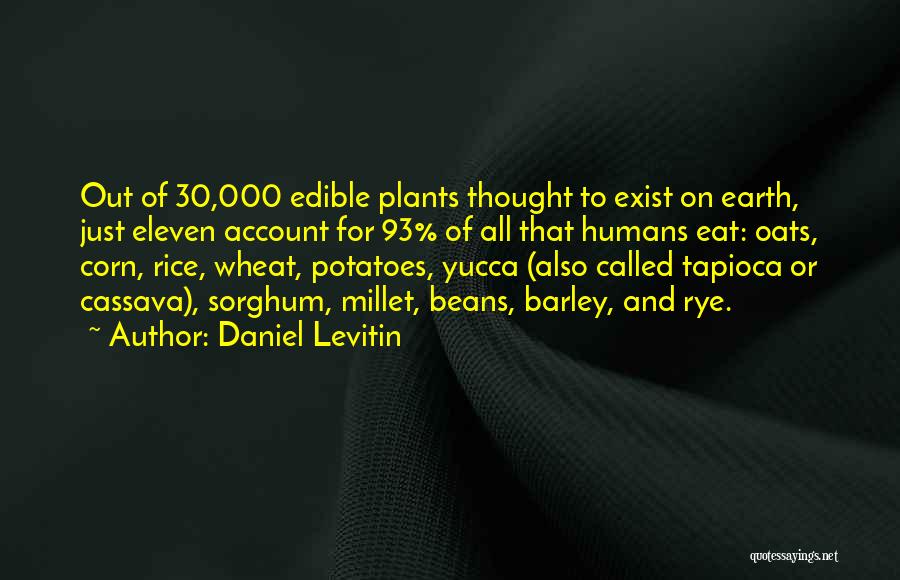
Out of 30,000 edible plants thought to exist on earth, just eleven account for 93% of all that humans eat: oats, corn, rice, wheat, potatoes, yucca (also called tapioca or cassava), sorghum, millet, beans, barley, and rye. — Daniel Levitin
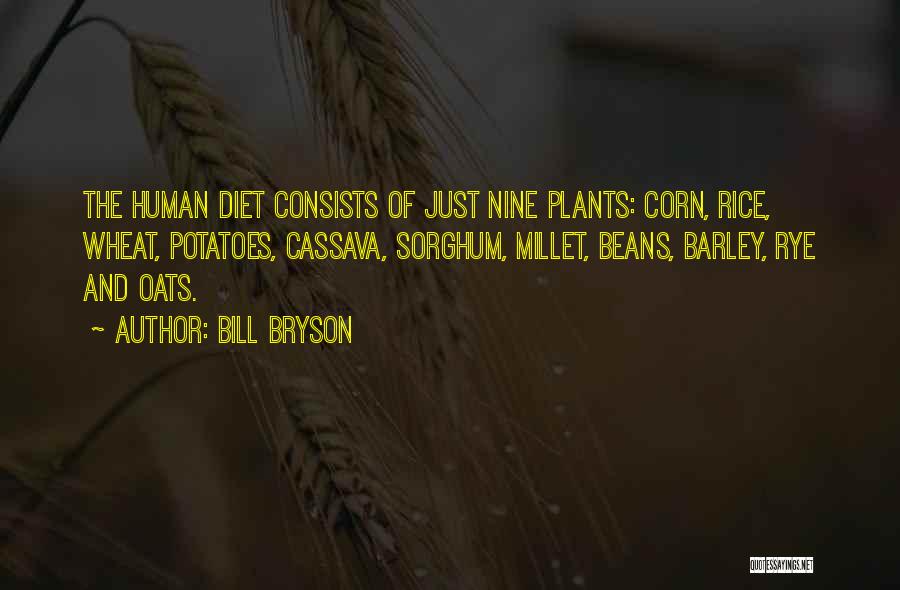
The human diet consists of just nine plants: corn, rice, wheat, potatoes, cassava, sorghum, millet, beans, barley, rye and oats. — Bill Bryson
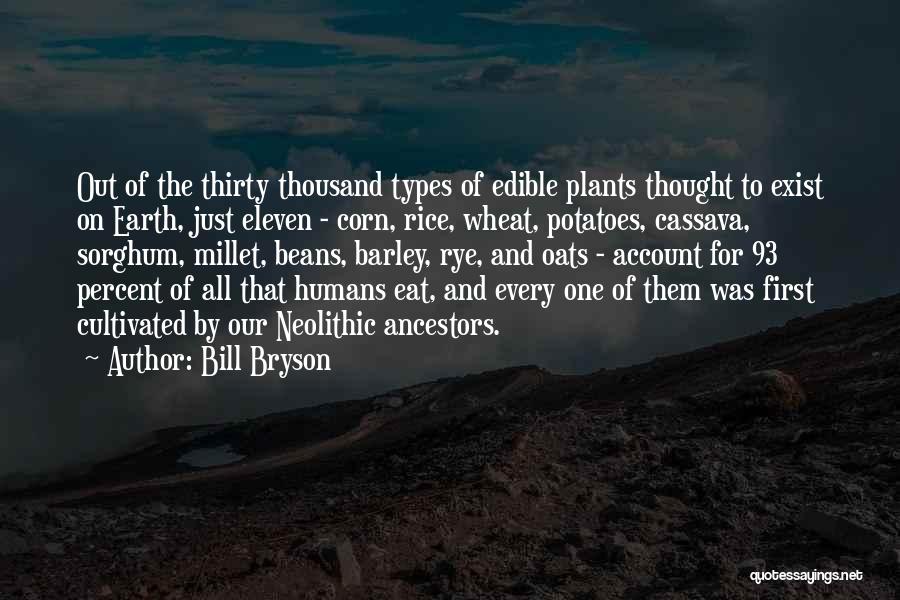
Out of the thirty thousand types of edible plants thought to exist on Earth, just eleven - corn, rice, wheat, potatoes, cassava, sorghum, millet, beans, barley, rye, and oats - account for 93 percent of all that humans eat, and every one of them was first cultivated by our Neolithic ancestors. — Bill Bryson
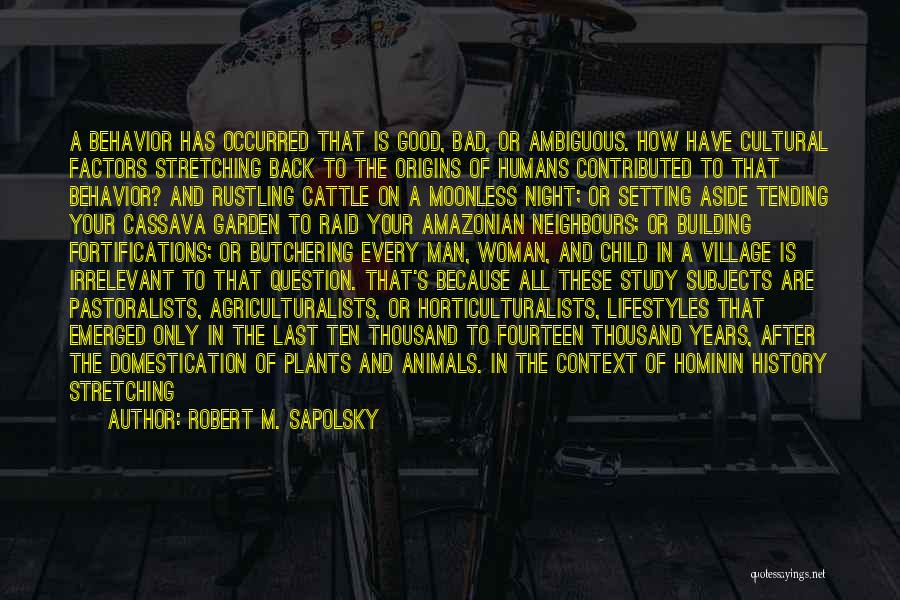
A behavior has occurred that is good, bad, or ambiguous. How have cultural factors stretching back to the origins of humans contributed to that behavior? And rustling cattle on a moonless night; or setting aside tending your cassava garden to raid your Amazonian neighbours; or building fortifications; or butchering every man, woman, and child in a village is irrelevant to that question. That's because all these study subjects are pastoralists, agriculturalists, or horticulturalists, lifestyles that emerged only in the last ten thousand to fourteen thousand years, after the domestication of plants and animals. In the context of hominin history stretching back hundreds of thousands of years, being a camel herder or farmer is nearly as newfangled as being a lobbyist advocating for legal rights for robots. For most of history, humans have been hunter-gatherers, a whole different kettle of fish. — Robert M. Sapolsky

New World escape crops made the economics of escape as tempting as its politics. Colonial officials tended to stigmatize cassava and maize as crops of lazy natives whose main aim was to shirk work. In the New World, too, those whose job it was to drive the population into wage labor or onto the plantation deplored crops that allowed a free peasantry to maintain its autonomy. Hacienda owners in Central America claimed that with cassava, all a peasant needed was a shotgun and a fishhook and he would cease to work regularly for wages. — James C. Scott

Potassium cyanide," says the talent wrangler as she leans over to pick up a paper napkin off the floor. "Found naturally in the cassava or manioc roots native to Africa, used to tint architectural blueprints in the form of the deep-blue pigment known as Prussian blue. Hence the shade 'cyan' blue. — Chuck Palahniuk

Which other people in this world stop up holes in their sidewalks with cassava, brothers and sisters? Only Indonesia itself, on account of the abundance of its food. — Sukarno
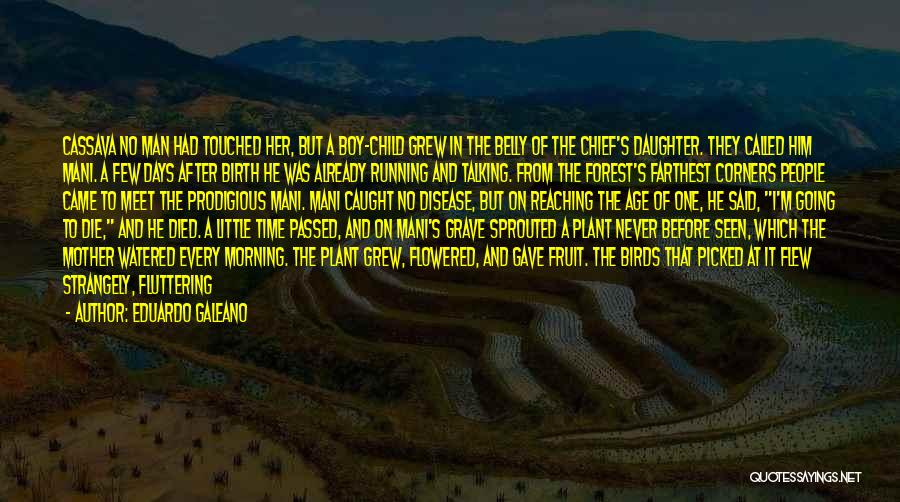
Cassava No man had touched her, but a boy-child grew in the belly of the chief's daughter. They called him Mani. A few days after birth he was already running and talking. From the forest's farthest corners people came to meet the prodigious Mani. Mani caught no disease, but on reaching the age of one, he said, "I'm going to die," and he died. A little time passed, and on Mani's grave sprouted a plant never before seen, which the mother watered every morning. The plant grew, flowered, and gave fruit. The birds that picked at it flew strangely, fluttering in mad spirals and singing like crazy. One day the ground where Mani lay split open. The chief thrust his hand in and pulled out a big, fleshy root. He grated it with a stone, made a dough, wrung it out, and with the warmth of the fire cooked bread for everyone. They called the root mani oca, "house of Mani," and manioc is its name in the Amazon basin and other places. (174) — Eduardo Galeano





